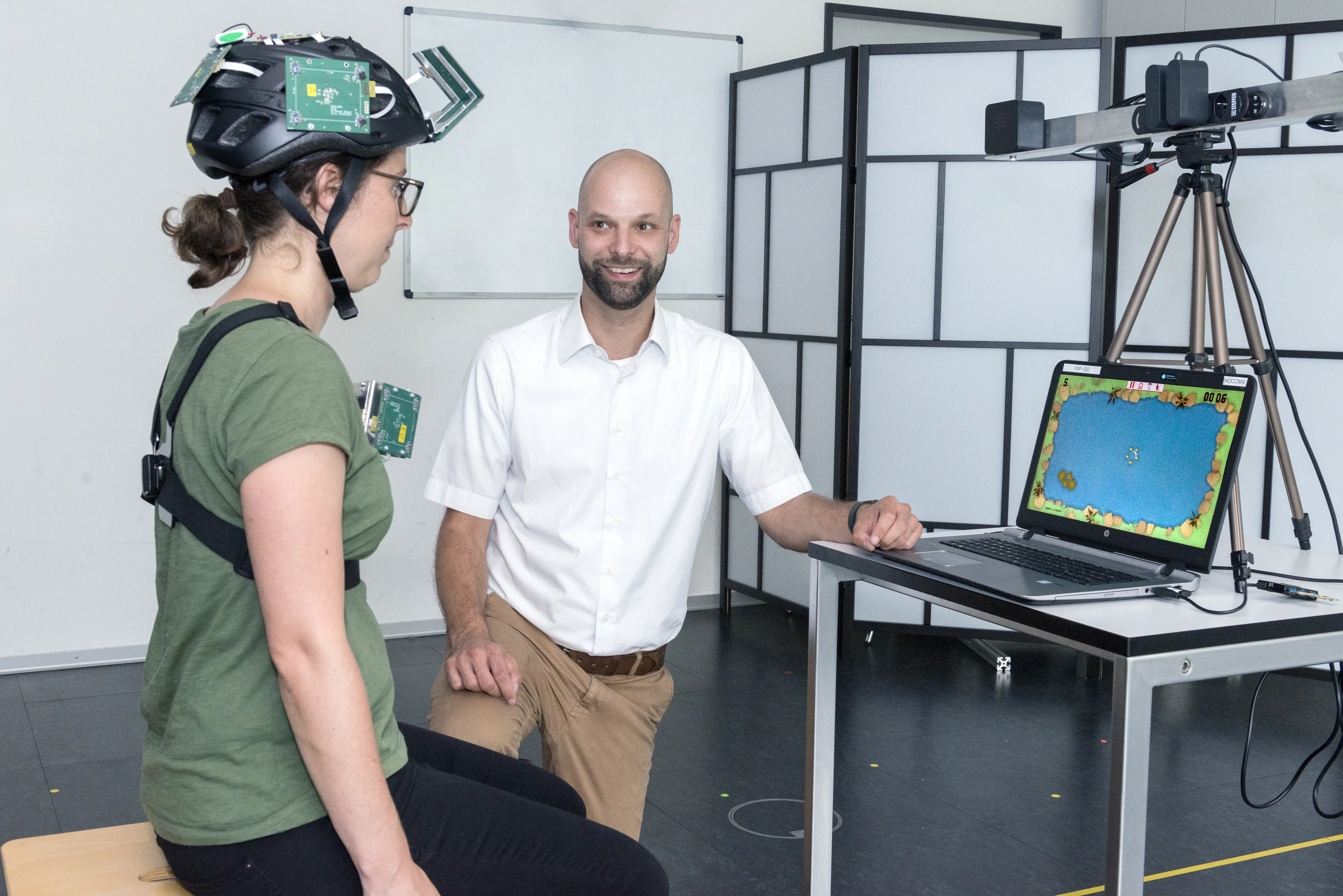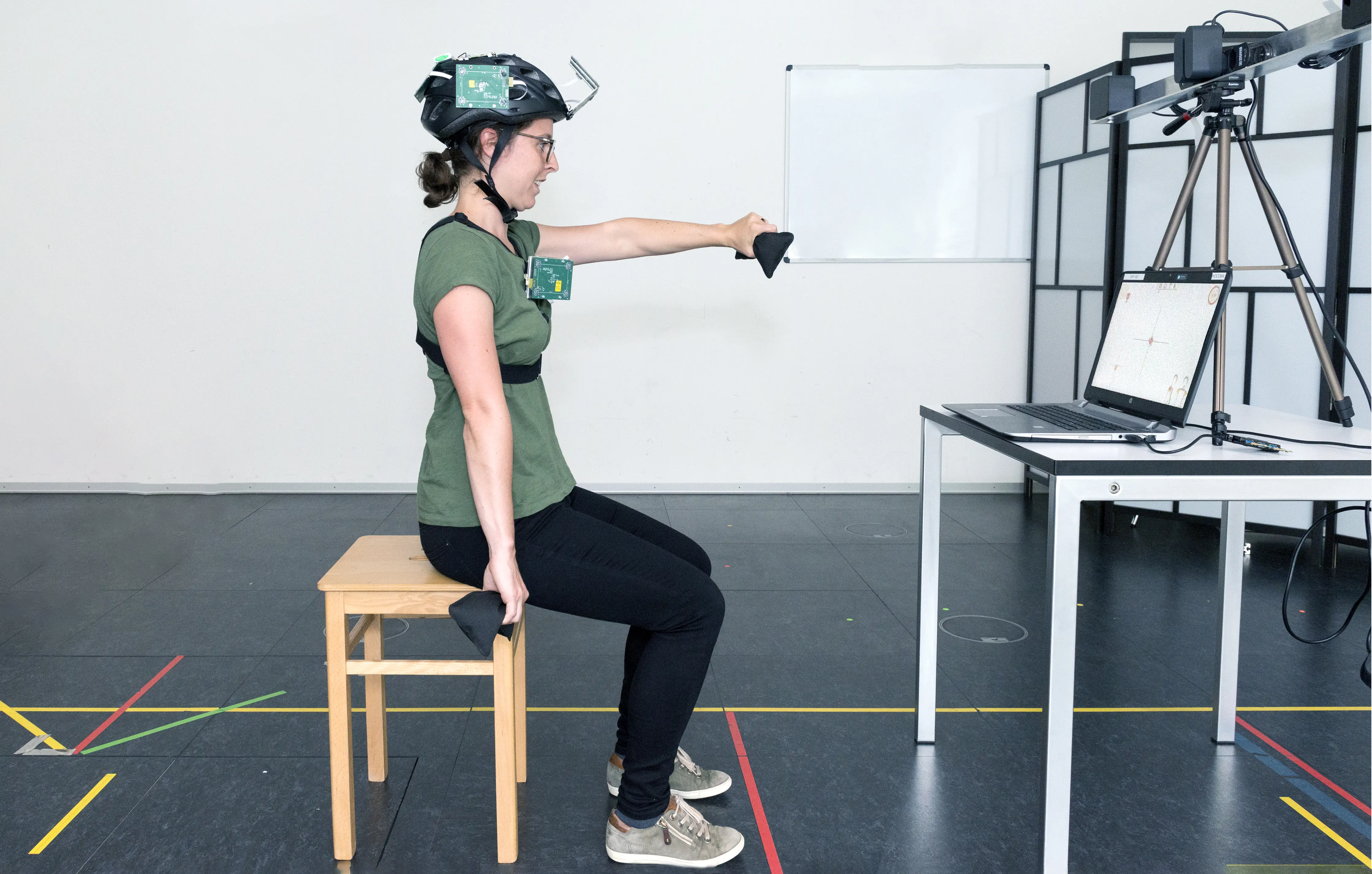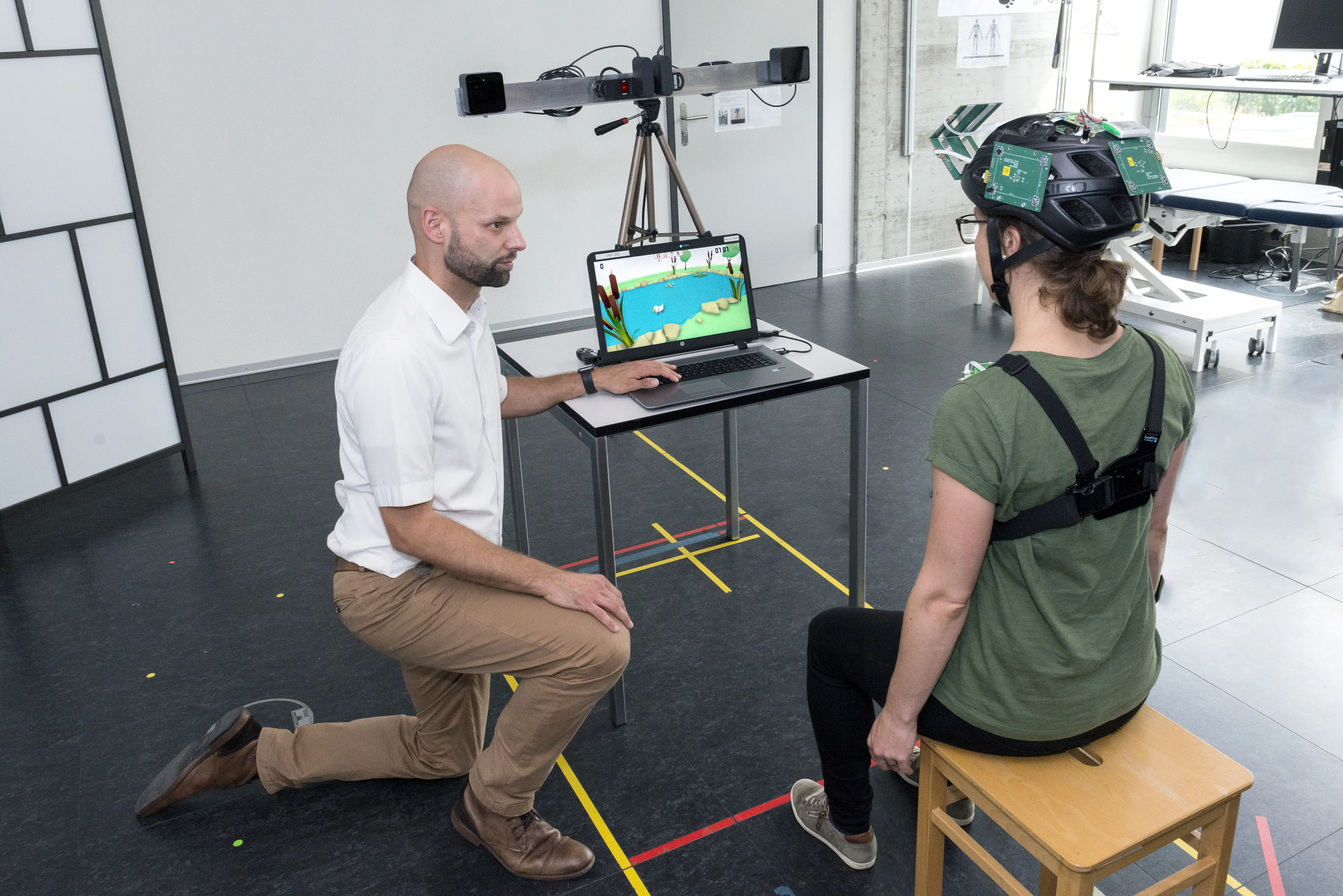Treating neck pain with a computer game
ZHAW researchers have teamed up with partners from industry and clinical practice to develop a system that treats neck problems using computer games. But this is about more than just fun and games. The system also makes it possible for the first time to measure neck movements, incorrect posture and successful treatment outcomes precisely.
Long days working in front of a computer, staring at a smartphone or too little exercise can wreak havoc on your neck. Left untreated, such pain can lead to severe physical impairments. Neck problems are now a widespread phenomenon and the fourth most common cause of disabilities in the world. Up to now, there has been no treatment capable of precisely measuring a patient’s movements, identifying incorrect posture or demonstrating successful treatment outcomes. For this reason, ZHAW researchers at the School of Health Professions and the School of Engineering teamed up with Hocoma, which develops devices for functional movement therapy, and partners from clinical practice to develop “Valedo Neck Therapy”.
“Gamification” for otherwise monotonous exercises
There is no single treatment for alleviating neck pain, as the causes and the needs of those affected are too different and too diverse. However, feedback-based physiotherapy can be particularly useful for people with chronically incorrect posture, which is why the ZHAW system aims to create individualised and beneficial treatments that are at the same time fun. It uses sensors to record a patient’s movements, which it then feeds into a computer game so that the movements are visualised. At the same time, the position of their neck is analysed, so that an incorrect posture, such as when a person holds their head forward too much (a condition known as “forward head posture”) can also be seen. «Our neck therapy allows us to offer exercises that are tailored to a patient’s specific needs,» says project manager Christoph Bauer from the ZHAW School of Health Professions. For example, patients have to use specific neck movements to control a mother duck feeding her chicks in a pond. Known as gamification, this approach turns otherwise monotonous exercises into a motivating game.
The measurement system was originally used for virtual reality glasses, but it was then adapted by ZHAW researchers with specially developed sensor hardware and software. This means that industry partner Hocomo has full design freedom when developing a market-ready measurement device for neck movements.
On display at Digital Day
The researchers were determined to make sure that their system would work in practice, which is why, in addition to Hocoma, several clinical partners participated in the project. The project itself was co-financed by Innosuisse, the Swiss Innovation Agency. Balgrist University Hospital, Balgrist Mov>Med, Medbase Praxis Archhöfe and Physiowerk Aadorf defined which patients the system should be developed for and how precise the measurements have to be. Based on these requirements, the ZHAW researchers developed two prototypes, and the neck therapy system was tested on 24 test subjects and with 12 therapists in clinics. The feedback from these tests will now be used to develop the prototypes further. «In the medium term, our goal is that people can use the computer game not only in the physiotherapist’s office but also at home,» says Bauer.
Neck pain sufferers who did not want to wait that long were able to test the prototypes earlier this month. ZHAW researchers presented their newly developed neck therapy system to visitors at the national Digital Day on 3 September at the Zurich railway station.
Contact
- Christoph Bauer, Head of the Movement Laboratory Research Group, ZHAW School of Health Professions, phone 058 934 64 49, email christoph.bauer@zhaw.ch
- Martin Weisenhorn, Lecturer, Signal and Image processing, ZHAW School of Engineering, phone 058 934 65 48, email martin.weisenhorn@zhaw.ch
- ZHAW Corporate Communications, phone 058 934 75 75, email medien@zhaw.ch




